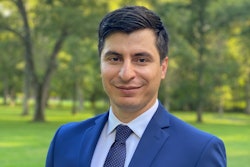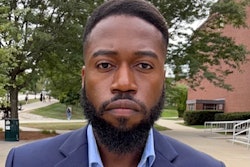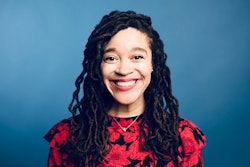Title: Assistant Professor, Women’s Health Occupational Therapist, University of St. Augustine for Health Sciences, Miami, FL
Tenured: No
Age: 37
Education: Bachelor of Arts in Psychology, Stonybrook University; Master of Science in Occupational Therapy, New York Institute of Technology College of Osteopathic Medicine; Doctor of Philosophy in Neuro-Nutrition Specialty , University of New Hampshire; Doctor of Occupational Therapy, Chatham University
Career mentors: Dr. Marcia Hamilton,University of St. Augustine for Health Sciences; Dr. Djora Soetman, Harvard T.H. Chan School of Public Health
Words of wisdom/advice for new faculty: “Always strive to see the bigger picture—how your teaching, research, and advocacy can ripple outward to impact lives.”
Dr. Sabina Khan always knew she wanted to work in rehabilitation, inspired from a young age by family members whose recoveries were transformed through effective rehab. But it was the birth of her first child that ignited her passion for women’s health within the field, leading her to focus on addressing critical gaps in maternal care.
 Dr. Sabina Khan
Dr. Sabina Khan
Khan is a licensed occupational therapist specializing in women’s health, with over 13 years of experience addressing critical gaps in rehabilitation and healthcare equity for women. Her work focuses on underserved communities, particularly pregnant and postpartum teenagers, including young women of color navigating the complexities of adolescence alongside the demands of motherhood. Khan’s mission is to empower these women by building life skills, supporting their education, and creating opportunities for better futures for them and their children.
Khan’s research combines quantitative and qualitative methods to optimize care for vulnerable populations. As a professor, she prepares health science students to address systemic inequities through empathy, understanding occupational injustices, and recognizing how power dynamics shape healthcare outcomes.
“I wanted to become a professor to prepare students to address the intersection of advocacy and healthcare, that is what inspired me to pursue a career in academia,” says Khan. ”I wanted my classes to be a space where future healthcare practitioners could deeply engage with the challenges faced by vulnerable populations, such as pregnant and postpartum women of color, who often encounter systemic barriers and inequities in care. By introducing concepts like occupational injustice—the ways in which systemic factors limit individuals’ ability to engage in meaningful activities.”














